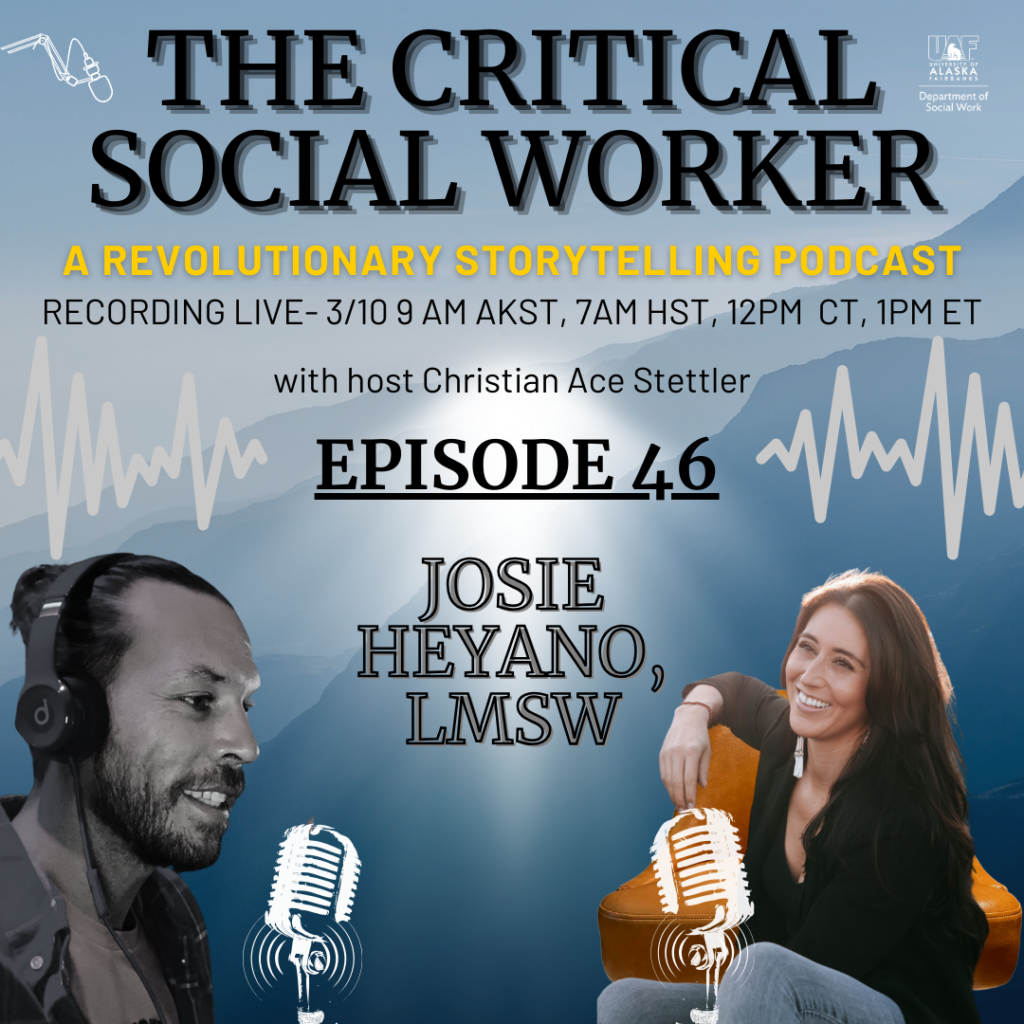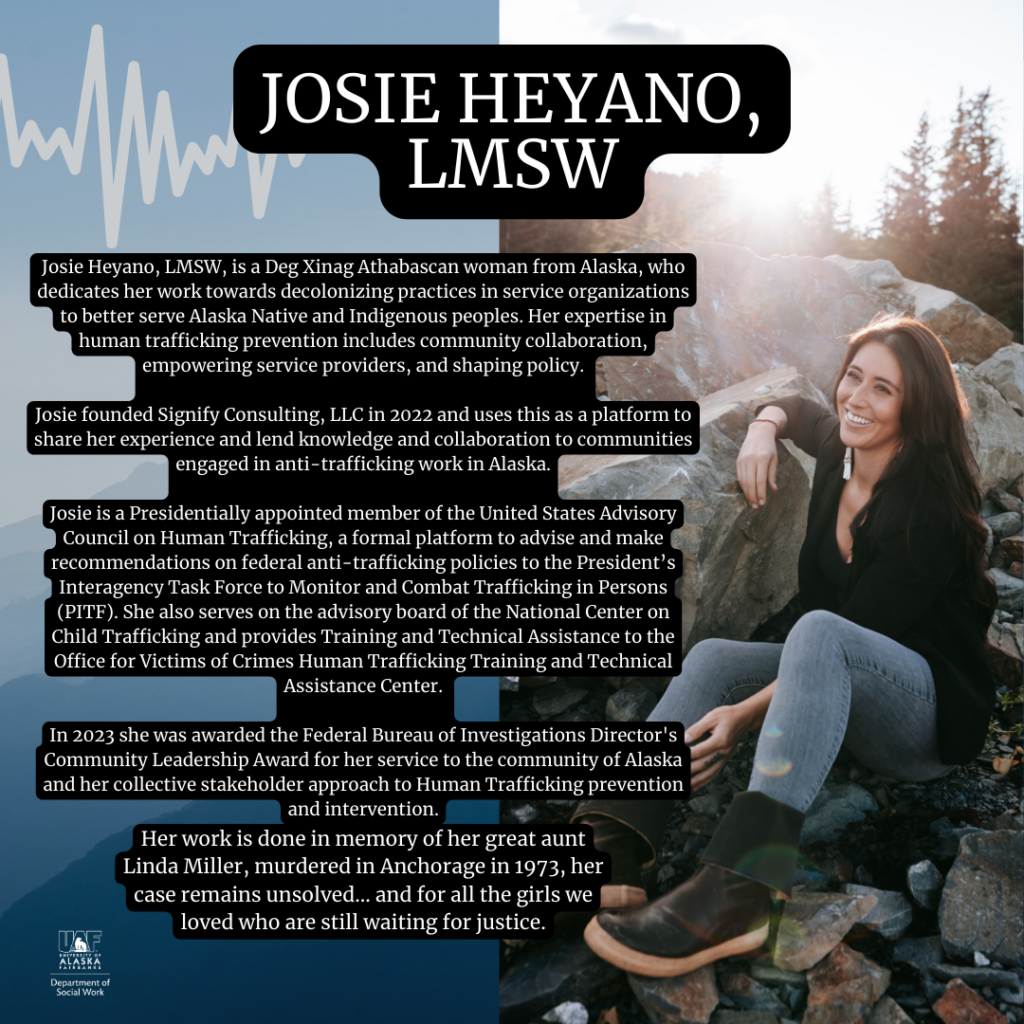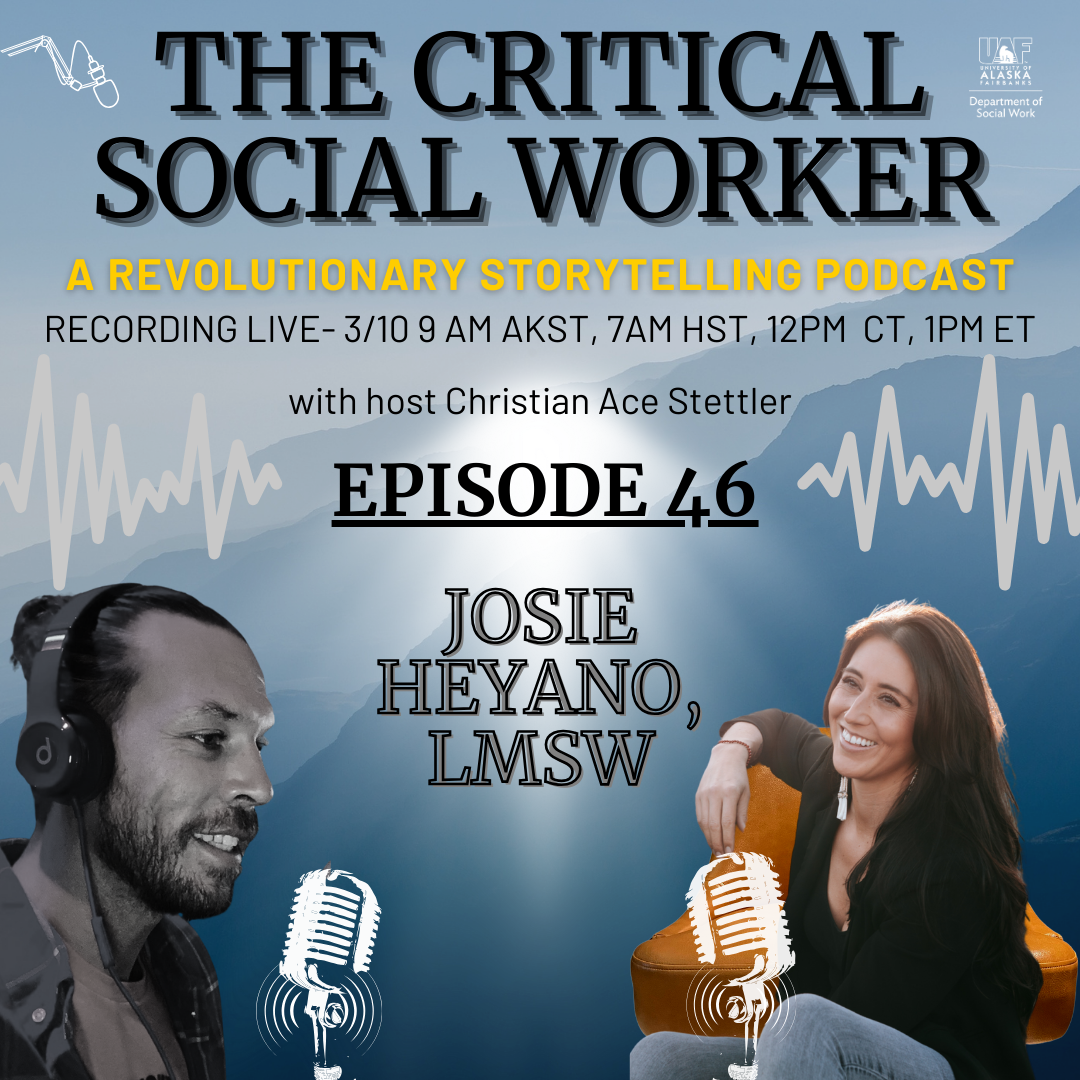

The Critical Social Worker podcast unfolds unique stories and diverse perspectives to foster critical dialogue, empathy, and understanding for all listeners. Through storytelling, we aim to change ourselves and the world, one story at a time.
In this episode of The Critical Social Worker, Josie Heyano and Christian Ace Stettler discuss a variety of experiences they have each had in the field of social work and observations about the profession, trends in the behavior of social work agencies toward their employees, and how intuition can guide decision making for practitioners seeking to decolonize the delivery of social services.
Decolonization can be understood as “the process of freeing an institution, sphere of activity, etc. from the cultural or social effects of colonization.”
Oxford Languages
One of the statements made early by Christian, “The system works us so hard, in some ways, to keep us so busy that we don’t have time to worry about things that we would change if we could,” points to the culture of the average American workplace, and really, the average American experience. Almost anyone you talk to these days will casually mention the conditions of being overworked, under valued, and underpaid for the labor they perform for their employer. In social work, a common issue is that folks are expected to see clients back-to-back from the start of the workday until office closure, and somehow still appropriately complete and submit paperwork on strict deadlines.
“We end up working in systems and places that want you to be in this lane… see these clients, do your documentation, and meet your billable hours. That’s great, I can get that done- but what do I do with the heartache? What do I do with everything I have now seen?”
Josie Heyano
As I was listening to Josie talk about the difficulty she’s had processing and dealing with the second-hand trauma that comes from listening to other people’s experiences in workplaces that don’t offer appropriate support for staff, I was struck by one phrase she used to describe the response she has often received from leadership: weaponized self-care. She explained it as the way leadership blames the individual social worker for feeling overwhelmed due to insufficient self-care practices instead of taking ownership and responsibility for creating an atmosphere in which there is no room for community care between peers or from leadership to employees. Hearing her describe these experiences made me reflect on responses I’ve received as a student from faculty when I have brought up similar concerns or asked questions like, “What do I do with all this grief that comes from learning the history of social work? How do I move forward knowing how dysfunctional the system is and that I, alone, can’t do anything to change it?” The consistent response has been, “Make sure you’re doing self-care,” and “Sit with the feelings and practice mindfulness.” So it would seem that the culture of individualism has spilled into what is advertised as a helping profession, to the point of being conditioned during education and training to not seek the same kinds of supports we encourage clients to access and utilize. How can we encourage others to do something we are actively prevented from doing? How can we expect other communities to take care of their members when we are not taking care of those in our community? And where do we start breaking down the walls of professionalism and unnecessary boundaries so that bridges of connection can be built in their place?


Business Health Institute
- Two-thirds of full-time employees say they have experienced burnout at some point in their careers.
- Workplace burnout is becoming increasingly more common.
- 36% of workers state that their organizations have nothing in place to help stave off employee burnout.
Another topic that stuck out to me in this episode was the way social workers are taught to treat dual relationships. Josie spoke of her own experiences of grappling with the strict emphasis placed on not allowing physical contact between practitioners and clients. She recalled times when her clients were people in her geographic community who didn’t have traditional experiences of what the social community could offer, like treating everyone as family and having the support and guidance of aunties. At times, she intuitively felt that what the person in her office needed was as simple as a hug. She described personally coming to a place where she began to allow that intuition to guide her instead of always adhering to a no-touch policy, and the benefit that doing so has had on both her and her clients. That made me think about how the world of therapy and counseling is quickly transitioning to being primarily available online via video conferencing. As beneficial as that reality is for many people who are otherwise unable to access this type of service, it’s important to think about the cultural implications of entirely removing the element of sharing the same physical space. In moments of extreme emotional and mental vulnerability, the physical aspect of existence doesn’t disappear. And often times, a comforting hand on someones shoulder can offer reassurance that they are not as alone as they may feel in a way that no words can during those moments of vulnerability.

Two of the NASW Core Values are Dignity and Worth of the Person and Importance of Human Relationships. Social workers are tasked with embodying these values. How can the profession of social work better cultivate a culture in which practitioners are also seen a individuals deserving of the respect extended to clients? How can the profession promote a culture that values the importance of human relationships within agencies, clinics, and other social work settings?

Comments
4 responses to “How Professional Culture can be a Hurdle to Connection”
Wow Charles! What a great blog. Thank you for sharing!
I find weaponized self care to be super interesting, and startling. I have never thought about it in this way, or noticed how weaponized self care can be in the work force.
I work with people everyday, who have been beaten down, and are the most vulnerable individuals in society, and it impacts you. It really does, and I always say that this job has made me meaner, but it has also made me nicer.
My favorite quote, is “The expectation that we can be immersed in suffering and loss and not be touched by it is as unrealistic as expecting to walk through water without getting wet.” (Remen 1996)
Hi Charles.
I really appreciate how you set up your blog.
I think the main takeaway from your blog would have to highlight the endurance and mental capacity that a social worker deals with on a daily basis. As I’ve learned from previous classes, it is important for a social worker to help others at their fullest potential. But it is also important to discuss the overall health of the social worker. If you want to help others, it is important to help yourself as well.
Great sharing!
Man, when professor Christian made that statement about how the system overworks us to the point that it’s difficult to focus on making change in our lives. This is exactly how I feel. It’s even more disheartening when you work 40hr weeks plus overtime and still barely afford to get by. By the time I get home from work, I only have a few hours to spend with my girls and try to tackle all of the other things I need to do. If I work out when they sleep then that takes 30 minutes away from homework I need to get done. Maybe it’s just me but it’s hard for me to juggle work, my amazing daughters, school, and our overall health. It’s even worse when you don’t feel seen or valued for it all or when the clock is working against you. This is the first time I’m hearing of weaponized self care. But wow!! I can definitely see how that can be an issue in a social work setting. It’s valuable that it’s apart of Social work ethics but if it’s not actually being promoted and implemented in the work environment it doesn’t matter. Social workers may have knowledge and schooling but you can’t blame someone who is overworked, underpaid, and taking on secondary trauma to be able to effectively practice self care, turn around a blame them for it when nothing is being done to help support.
Hi Charles, I really enjoyed your blog. When talking about the importance of being physically there for someone, especially during therapy, made me think about my own experiences with therapy. It reminded me so much of how isolated I felt when the pandemic first hit, and we were told to avoid being close to each other. The idea that sometimes a person needs a hug to feel better is something we can often forget. It makes me think about how moving therapy online, while helpful in many ways, misses out on the simple but powerful act of being in the same room with someone. There may be no real substitute for the comfort of a reassuring touch during tough times.